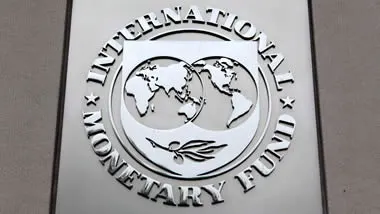The IMF’s latest prediction that a third of the global economy would enter another recession in 2023 is unsettling news for Nigeria’s economy, which has consistently wasted chances to achieve growth and sustainable development. The World Bank has also decreased its projections in several areas. It estimates the rise in per capita income in sub-Saharan Africa for 2023–2024 at 1.2% in its most recent Global Economic Prospects study. This is problematic for Nigeria.
This will exacerbate poverty, which currently affects 133 million people and needs constant double-digit growth to avoid collapse.
Also Read: Need For Electoral Reform in Nigeria Ahead of The 2023 Presidential Election
Before Kristalina Georgieva, the managing director of the IMF, issued her warning, Nigeria’s economy had been plagued by problems, including high inflation, the FX crisis, sharp unemployment, and shoddy infrastructure. There is always the energy conundrum. The grim situation is further compounded by uncertainty, a protracted gasoline shortage, and rising loan rates.
Nigeria achieved 3.6 percent growth in 2021 after experiencing negative GDP growth of -1.8 percent in 2020, mostly due to the COVID-19 lockdowns. The third quarter of 2022 saw a slowdown in GDP growth from the second quarter’s 3.54 percent growth rate to 2.25 percent. The expected gain of 2.95 percent was not achieved. Nigeria’s growth projection for 2023 was reduced by the World Bank in December from 3.2% to 2.9%.
The International Monetary Fund (IMF) has warned of the possibility of a fresh global recession in the wake of the COVID-19 pandemic. In its October 2020 World Economic Outlook report, the IMF projected that the global economy will contract by 4.4% in 2020, with a slow recovery in 2021. The report highlighted that the economic recovery is uncertain and uneven across countries and sectors and that there is a significant risk of a setback if the pandemic continues to spread and containment measures are re-imposed. The IMF urged countries to continue providing support to households and businesses and to implement policies that will help to revive economic activity and create jobs.
Also Check: Nigeria: Need for Mandatory Mental Assessment for Policemen
The COVID-19 pandemic has had a severe impact on the global economy, causing widespread business closures, job losses, and a sharp decline in economic activity. The IMF’s October 2020 World Economic Outlook report estimates that the global economy will contract by 4.4% in 2020, the worst recession since the Great Depression of the 1930s. The report also estimates that the global economy will grow by 5.2% in 2021, which is slower than the pre-pandemic forecast of 3.3% growth.
The economic recovery is uncertain and uneven across countries and sectors. Some countries and sectors have been more affected than others by the pandemic and the associated containment measures. For example, countries that rely heavily on tourism and international trade have been more affected than those that rely on domestic demand. In addition, sectors such as travel, tourism, and hospitality have been more affected than others, such as e-commerce and technology.
The IMF has warned that there is a significant risk of a setback if the pandemic continues to spread and containment measures are re-imposed. The report states that the economic recovery is dependent on the effectiveness of containment measures in controlling the spread of the virus, and that any resurgence of the virus could lead to a renewed decline in economic activity. The report also states that the economic recovery is dependent on the availability of vaccines, and that any delays in the distribution of vaccines could lead to a slower recovery.
Also Read: Effective Ways to Educate Girls And End Child Marriage
The IMF has urged countries to continue providing support to households and businesses. The report states that countries should continue to provide support to households and businesses in the form of income support, credit guarantees, and other measures. This is necessary to help households and businesses to weather the economic downturn and to ensure that the economic recovery is not hindered by a rise in poverty and debt.
The IMF has also urged countries to implement policies that will help to revive economic activity and create jobs. The report states that countries should implement policies that will help to revive economic activity and create jobs, such as investing in infrastructure, education, and training. This is necessary to help to create jobs and to ensure that the economic recovery is not hindered by a lack of demand.
In conclusion, the IMF’s October 2020 World Economic Outlook report has warned of the possibility of a fresh global recession in the wake of the COVID-19 pandemic. The report states that the global economy will contract by 4.4% in 2020, with a slow recovery in 2021. The report also highlights that the economic recovery is uncertain and uneven across countries and sectors, and that there is a significant risk of a setback if the pandemic continues to spread and containment measures are re-imposed. The IMF has urged countries to continue providing support to households and businesses, and to implement policies that will help to revive economic activity and create jobs.
